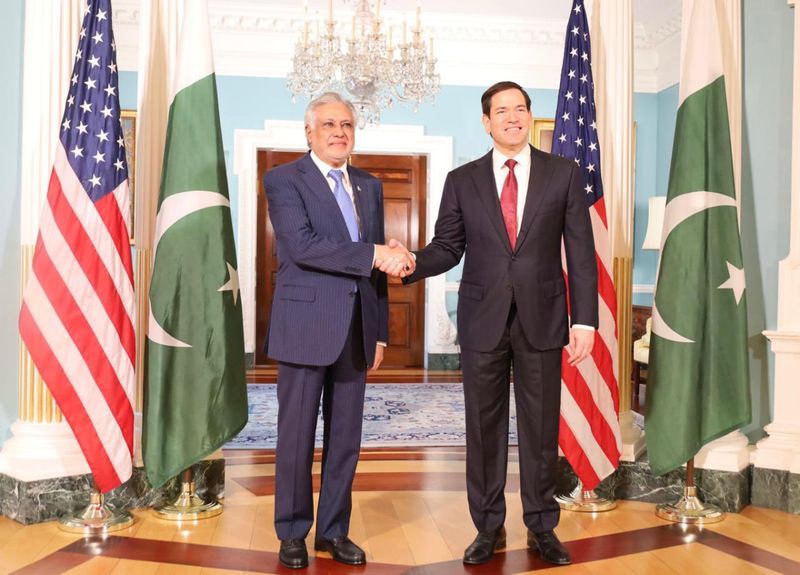The meeting reflected a renewed warmth in US-Pakistan ties under the Trump administration, a shift particularly noticeable to New Delhi.
New Delhi: US secretary of state Marco Rubio on July 25 welcomed Pakistan’s “willingness” to mediate with Iran and its commitment to maintaining “regional stability” during a meeting with Pakistani deputy prime minister and foreign minister Ishaq Dar – the first foreign minister-level engagement between the two countries in three years.
The meeting reflected a renewed warmth in US-Pakistan ties under the Trump administration, in contrast to the previous Biden years, when former president Biden did not directly engage with either Imran Khan or Shehbaz Sharif during their tenures as prime minister.
The shift has been particularly noticeable to New Delhi, which has been uneasy over President Donald Trump’s repeated claims that he pressured India and Pakistan into a ceasefire following four days of cross-border clashes by leveraging trade.
India has maintained that the hostilities ended only after a direct military-to-military conversation between the two sides, with no third-party intervention.
Pakistan, which has long sought to internationalise the Kashmir dispute, publicly supported Trump’s version and even nominated him for the Nobel Peace Prize. A week after the ceasefire, Pakistan army chief Asim Munir visited the White House for a lunch meeting with Trump. The discussion focused on Iran and came shortly after Israeli airstrikes on Iranian territory.
According to the US State department readout, Rubio “expressed appreciation for Pakistan’s continued willingness to play a constructive role in mediating conversations with Iran and its commitment to preserving regional stability”.
It also stated that the two ministers on Friday “discussed prospects for deepening bilateral counterterrorism cooperation, including countering ISIS-K, and the upcoming U.S.-Pakistan Counterterrorism Dialogue in Islamabad this August”.
Pakistan’s opening with the Trump administration began in the early months of his second term, when its military quietly handed over an Islamic State (ISIS-K) militant to US authorities. Trump later referenced the handover in his first address to Congress, singling out Pakistan for praise, which was an early indication of the alignment that would follow.
Rubio also raised the issue of “mutually beneficial bilateral trade”, language seen as reflecting the Trump administration’s concern about trade deficits. He spoke about enhancing collaboration in the critical minerals and mining sectors, which has been a priority area for Trump amid China’s tightening control of global supply chains.
At an event hosted by the Atlantic Council, the visiting Pakistani minister said the United States and Pakistan were close to concluding a deal to extract minerals from Pakistan. He suggested that an agreement could be finalised in “weeks and days, not months”.
During an interaction at a think-tank Atlantic Council, he stated the US and Pakistan were close to concluding a deal for extracting minerals from Pakistan and an agreement could be finalised in “weeks and days, not months.”
In a post on X, he wrote the two sides had reaffirmed their “commitment to the long-term Pakistan-US partnership, with renewed focus on economic, trade, investment, IT/AI, and CT cooperation”. He also thanked the United States for what he described as a constructive role in helping facilitate the recent ceasefire between Pakistan and India.
According to a statement issued by the Pakistan embassy in Washington, as reported by Dawn, Dar told Rubio that the U.S. intervention had “helped avert a potential nuclear confrontation and restored calm to a volatile region”.
The Wire is now on WhatsApp. Follow our channel for sharp analysis and opinions on the latest developments.
